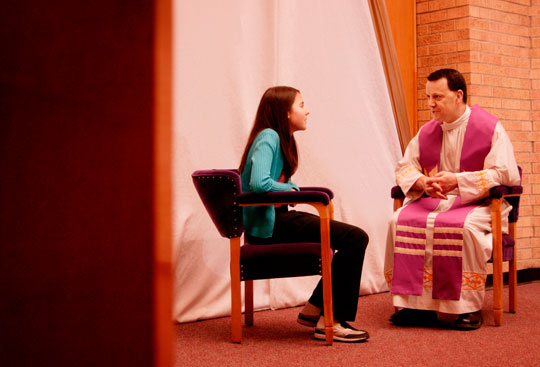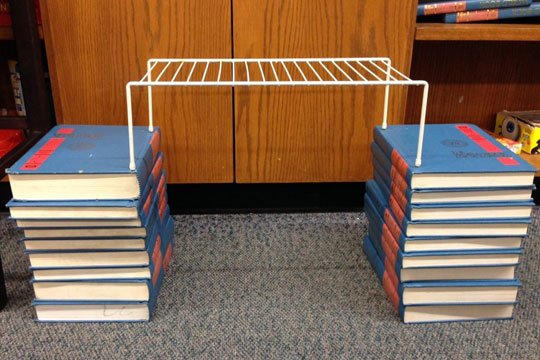
We were created for love, and we naturally seek forgiveness. This is one reason children naturally take to lessons on the Sacrament of Reconciliation. In their young lives, the kids in my third-grade class have made mistakes and gotten in trouble, all the while being continuously loved and constantly forgiven by a parent.
In our lesson about Reconciliation, I included a discussion of the difference between what is a sin versus what is an accident. I wondered before starting the class if this would be a difficult concept for the children to grasp, but I was pleasantly surprised. We discussed a couple of examples, and they all appeared to understand the difference.
I then asked the class for examples of a time when they had done something wrong. Almost everyone raised a hand. Most of their examples involved their siblings: either they had committed wrongs against their siblings or their siblings had committed wrongs against them. I found this a bit amusing, but I did remember to ask for examples that didn’t include siblings. These examples included lying, cutting in line, calling someone a name, being rude, stealing, hitting, talking back to a parent or teacher, and cheating.
I then led the class in a guided meditation about apologizing and forgiveness. I began by asking them to close their eyes and recall a time when they had done wrong to someone. After a moment, I asked them to picture a time when someone had done wrong to them. I posed the following questions: How did it feel to commit the wrong? How did it feel to be the person wronged? Did you apologize? Did the other person apologize? Were the apologies sincere, or were they said because a teacher or parent made him or her apologize? Was it a true apology?
The students didn’t really understand what I meant by a sincere or true apology, so I gave them an example. I said “I’m sorry” in a flippant tone and rolled my eyes (just like I had done countless times as a teenager). They all said “Ohhhh,” confirming that they understood the difference between an apology that was sincere and one that wasn’t.
An obvious question presented itself: Do apologies count if you don’t really mean them? The children all seemed to agree—in order for apologies to count, the person must be sincere; he or she must mean what he or she says. I explained that the same was true with Reconciliation. In order to receive forgiveness, we must identify our sins and be truly sorry for committing the wrong. We can’t just pretend to be sorry. When we are sincerely and truly sorry, God will forgive us our sins.
I didn’t want the children to be afraid that God wouldn’t trust that their apologies were genuine. I reminded them that God always loves them, and he is ready to offer forgiveness. God knows what is in all our hearts, and when we come to him, truly sorry for our sins, God will forgive us. No matter what we’ve done or how long it has been since we last confessed our sins, God is always there loving us, waiting for us to celebrate the Sacrament of Reconciliation.
What I remember most clearly about this lesson is how much these children want to know God loves them and how God will forgive them every time they mess up. How do you teach God’s love and forgiveness? How do you help children recognize the Sacrament of Reconciliation as a sign of God’s mercy?





Be the first to comment